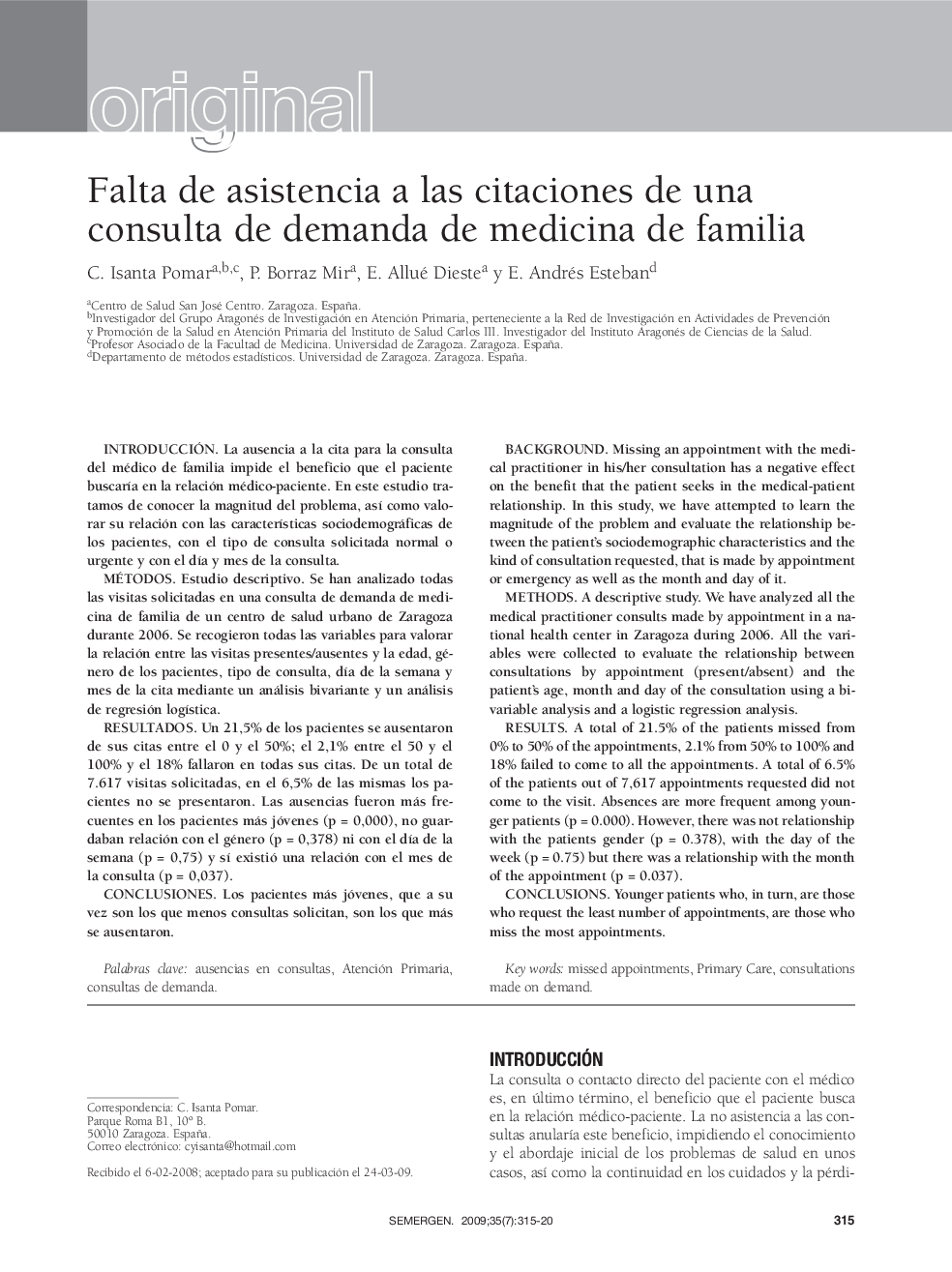| Article ID | Journal | Published Year | Pages | File Type |
|---|---|---|---|---|
| 3835418 | SEMERGEN - Medicina de Familia | 2009 | 6 Pages |
IntroducciónLa ausencia a la cita para la consulta del médico de familia impide el beneficio que el paciente buscaría en la relación médico-paciente. En este estudio tratamos de conocer la magnitud del problema, así como valorar su relación con las características sociodemográficas de los pacientes, con el tipo de consulta solicitada normal o urgente y con el día y mes de la consulta.MétodosEstudio descriptivo. Se han analizado todas las visitas solicitadas en una consulta de demanda de medicina de familia de un centro de salud urbano de Zaragoza durante 2006. Se recogieron todas las variables para valorar la relación entre las visitas presentes/ausentes y la edad, género de los pacientes, tipo de consulta, día de la semana y mes de la cita mediante un análisis bivariante y un análisis de regresión logística.ResultadosUn 21,5% de los pacientes se ausentaron de sus citas entre el 0 y el 50%; el 2,1% entre el 50 y el 100% y el 18% fallaron en todas sus citas. De un total de 7.617 visitas solicitadas, en el 6,5% de las mismas los pacientes no se presentaron. Las ausencias fueron más frecuentes en los pacientes más jóvenes (p = 0,000), no guardaban relación con el género (p = 0,378) ni con el día de la semana (p = 0,75) y sí existió una relación con el mes de la consulta (p = 0,037).ConclusionesLos pacientes más jóvenes, que a su vez son los que menos consultas solicitan, son los que más se ausentaron.
BackgroundMissing an appointment with the medical practitioner in his/her consultation has a negative effect on the benefit that the patient seeks in the medical-patient relationship. In this study, we have attempted to learn the magnitude of the problem and evaluate the relationship between the patient's sociodemographic characteristics and the kind of consultation requested, that is made by appointment or emergency as well as the month and day of it.MethodsA descriptive study. We have analyzed all the medical practitioner consults made by appointment in a national health center in Zaragoza during 2006. All the variables were collected to evaluate the relationship between consultations by appointment (present/absent) and the patient's age, month and day of the consultation using a bivariable analysis and a logistic regression analysis.ResultsA total of 21.5% of the patients missed from 0% to 50% of the appointments, 2.1% from 50% to 100% and 18% failed to come to all the appointments. A total of 6.5% of the patients out of 7,617 appointments requested did not come to the visit. Absences are more frequent among younger patients (p = 0.000). However, there was not relationship with the patients gender (p = 0.378), with the day of the week (p = 0.75) but there was a relationship with the month of the appointment (p = 0.037).ConclusionsYounger patients who, in turn, are those who request the least number of appointments, are those who miss the most appointments.
